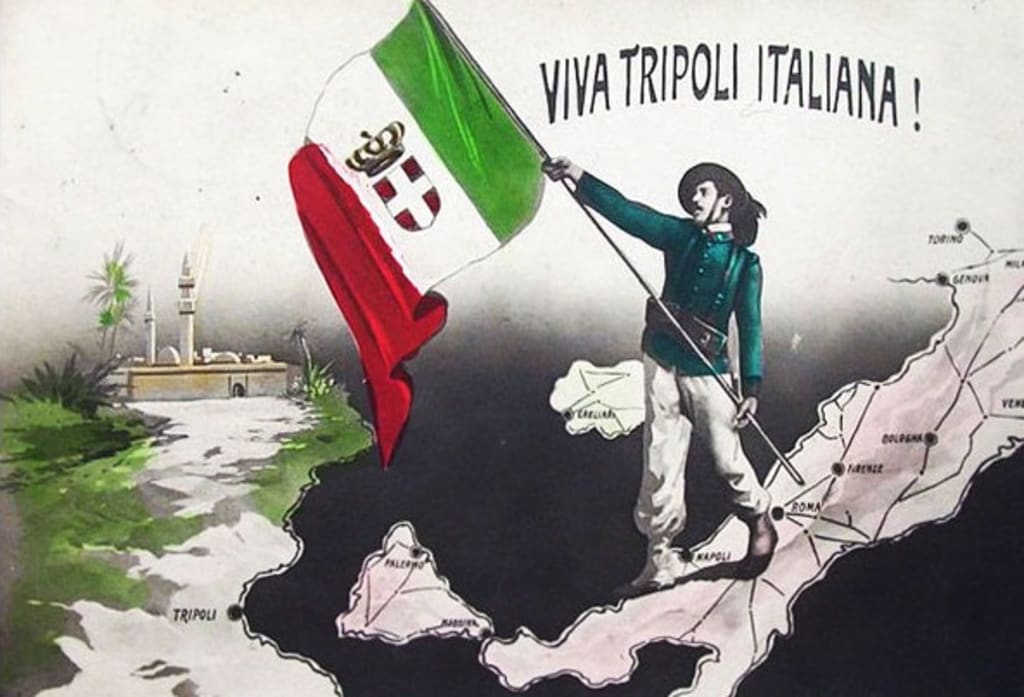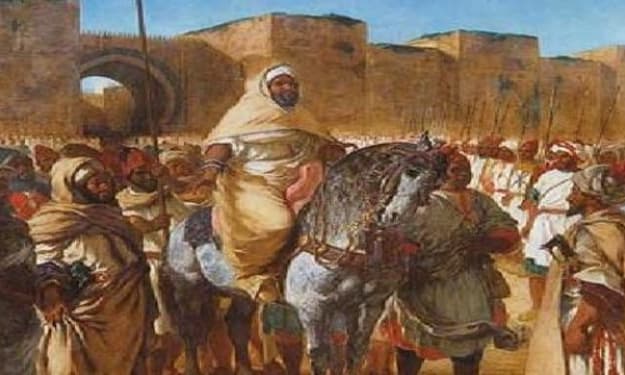The Italian Colonial Empire
A Brief History

The Italian Colonial Empire
The Italian colonial empire was a short-lived empire that existed from the late 19th century to the mid-20th century. It was founded by the Kingdom of Italy, which was unified in 1861. The Italian empire reached its peak in the early 20th century, when it controlled territories in Africa, the Mediterranean, and East Asia.
The Italian empire was founded on a number of factors, including the desire to expand Italy's power and influence, the need to find new markets for Italian goods, and the belief that Italy was destined to be a great power. The Italian government also believed that colonialism would help to unify the Italian people and create a sense of national identity.
The Italian empire was built through a combination of conquest, diplomacy, and economic exploitation. The Italian government used its military to conquer territories in Africa, including Eritrea, Libya, Somalia, and Ethiopia. Italy also acquired territories in the Mediterranean, including the Dodecanese Islands and Libya, through diplomacy. And the Italian government used its economic power to exploit the resources of its colonies, such as rubber, cotton, and minerals.
The Italian empire had a significant impact on the peoples of the territories it controlled. The Italian government imposed its own language, culture, and laws on the colonies. It also exploited the resources of the colonies for the benefit of Italy. This led to resentment and resistance from the peoples of the colonies.
The Italian empire began to decline in the early 20th century. The Italian government was unable to effectively administer its colonies, and it faced increasing opposition from the peoples of the colonies. The Italian empire also suffered from the economic effects of World War I.
The Italian empire came to an end in the wake of World War II. Italy was defeated in the war, and its colonies were granted independence. The Italian empire was a short-lived empire, but it had a significant impact on the peoples of the territories it controlled.
The Rise of the Italian Colonial Empire
The Italian colonial empire began to take shape in the late 19th century. In 1869, Italy purchased Assab Bay on the Red Sea from a local ruler. This was the first step in Italy's expansion into Africa.
In 1882, Italy established a protectorate over Eritrea. This was followed by the conquest of Libya in 1911-1912. In 1935-1936, Italy invaded Ethiopia, which was at the time the only independent African country in the region.
The Italian government also acquired territories in the Mediterranean. In 1878, Italy acquired the Dodecanese Islands from the Ottoman Empire. And in 1912, Italy acquired Libya from the Ottoman Empire.
The Italian Colonial Empire at its Peak
The Italian colonial empire reached its peak in the early 20th century. In 1936, Italy controlled the following territories:
- Eritrea
- Libya
- Somalia
- Ethiopia
- the Dodecanese Islands
The Italian empire was the fourth largest colonial empire in the world, after the British, French, and Dutch empires.
The Decline of the Italian Colonial Empire
The Italian colonial empire began to decline in the early 20th century. The Italian government was unable to effectively administer its colonies, and it faced increasing opposition from the peoples of the colonies.
The Italian empire also suffered from the economic effects of World War I. The war led to a decline in Italy's economy, which made it difficult for the government to invest in its colonies.
The End of the Italian Colonial Empire
The Italian colonial empire came to an end in the wake of World War II. Italy was defeated in the war, and its colonies were granted independence.
The following territories were granted independence from Italy after World War II:
- Eritrea (1941)
- Libya (1943)
- Somalia (1949)
- Ethiopia (1941)
- the Dodecanese Islands (1947)
The Italian colonial empire had a significant impact on the peoples of the territories it controlled. The Italian government imposed its own language, culture, and laws on the colonies. It also exploited the resources of the colonies for the benefit of Italy. This led to resentment and resistance from the peoples of the colonies.
The Italian colonial empire was a short-lived empire, but it had a lasting impact on the peoples of the territories it controlled.
About the Creator
Hmid Abderrahmane
Abderrahman hmid, 23, a skilled content writer with translation expertise. Experienced in journalistic translation across fields. Owns a collection of unpublished fiction and creative stories awaiting an online debut. Thanks!






Comments
There are no comments for this story
Be the first to respond and start the conversation.